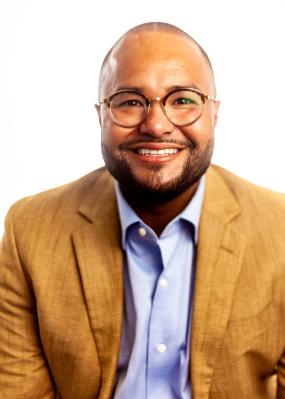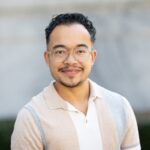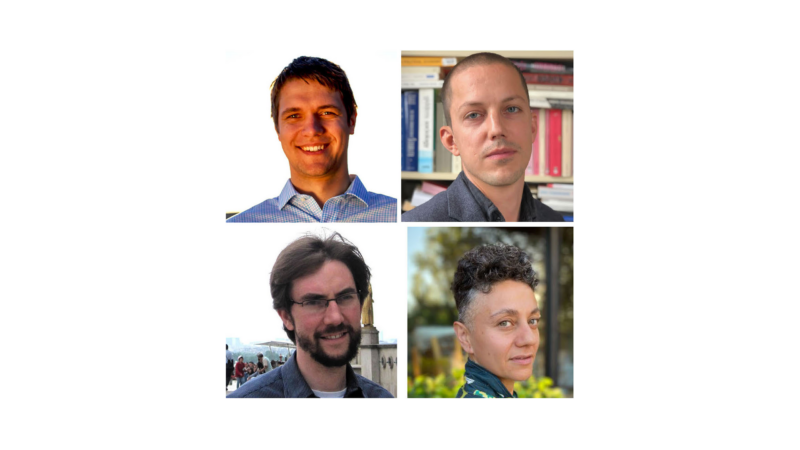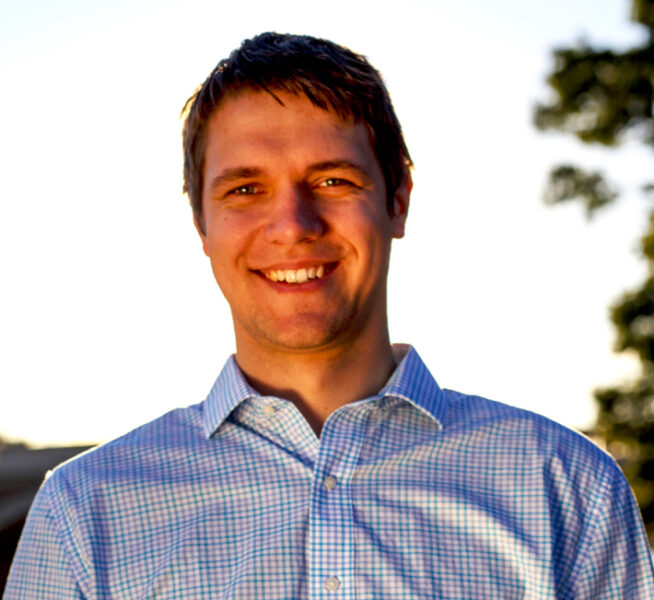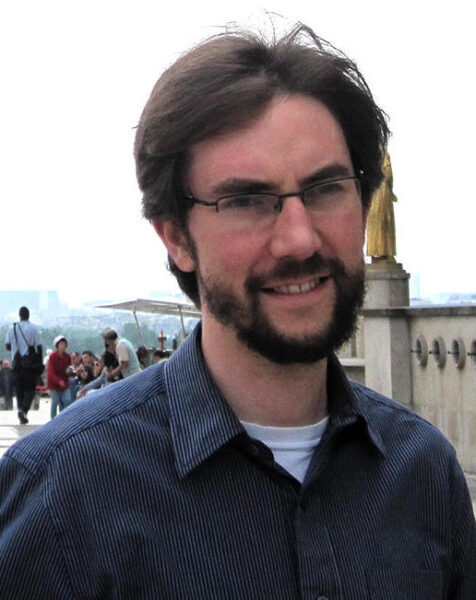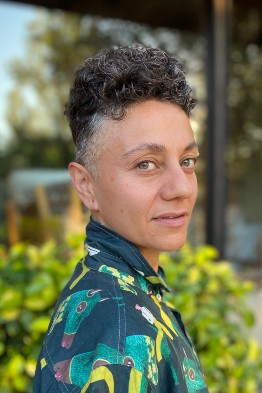Four UC Berkeley professors have been selected to be Matrix Faculty Fellows for the 2024-2025 academic year. The scholars are Ryan Brutger, Associate Professor in the Charles and Louise Travers Department of Political Science; Patrice Douglass, Assistant Professor of Gender and Women’s Studies; Ricarda Hammer, Assistant Professor of Sociology; and Hidetaka Hirota, Associate Professor of History.
Launched in 2022, the Matrix Faculty Fellows program supports assistant- and associate-level faculty members at UC Berkeley for work on research that has a significant impact in multiple disciplines in the social sciences. Fellows are chosen for the impact of their work in their home discipline, as well as the project’s potential impact and interest to scholars in other fields, aligning with the mission of Social Science Matrix to support cross-disciplinary research.
Matrix Faculty Fellows receive a course release (i.e., a reduced teaching obligation) to allow them to pursue work on publications and/or a book manuscript. The professors will also participate in Matrix programs, for example by contributing a website feature, participating in a panel discussion, or holding a workshop on a topic related to their research.
Fellows’ proposals are evaluated for both the impact of the work in their home discipline, as well as the project’s potential impact and interest to scholars in other fields, aligning with the mission of Social Science Matrix.
Below are brief profiles of this year’s Matrix Faculty Fellows, adapted from their proposals.
Ryan Brutger, Associate Professor, UC Berkeley Charles and Louise Travers Department of Political Science
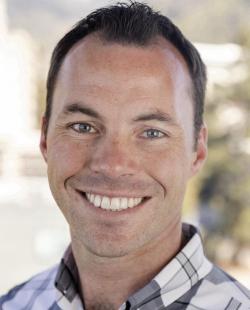
Professor Ryan Brutger will spend his time as a Matrix Faculty Fellow completing a book entitled, “Domestic Support for International Compromise and Cooperation,” which already has an advanced contract from Cambridge University Press. Drawing on research from political science, psychology, and economics, Brutger’s book focuses on how the negotiation process shapes domestic coalitions of support for international agreements around issues like climate change.
“To achieve international cooperation on climate change, trade, and security, countries must negotiate agreements at the international level, which are also politically viable at the domestic level,” Brutger explained in his proposal. “This topic is especially timely given the rising politicization and backlash against globalization, which has undermined cooperation on trade, climate change, and security issues.”
The project adopts a mixed method approach, using survey experiments to test the microfoundations of how the public forms opinions about climate change, and presents analysis from case studies and an original dataset of international negotiations to evaluate how negotiation strategies influence domestic support for cooperation in international relations.
Brutger also plans to organize a Matrix on Point conversation that focuses on overcoming challenges related to international cooperation on climate change, convening scholars from fields such as energy and environmental policy, economics, and sociology.
Patrice Douglass, Assistant Professor, Gender and Women’s Studies
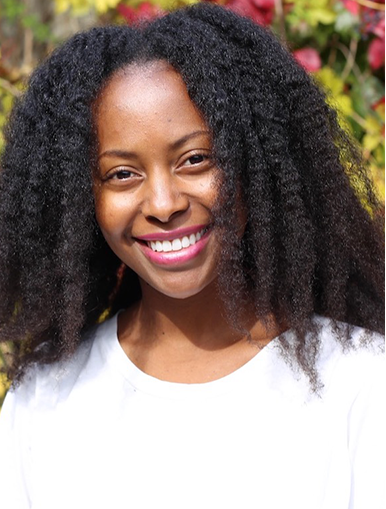
Professor Patrice Douglass will use her term as a Matrix Faculty Fellow to continue with research and writing of her book, “Race and Abortion Ethics: Antiblackness and the Opacity of Liberty,” which interrogates the (im)permissibility of abortion in U.S. law and politics.
“By attending to social and legal histories, U.S. geographies, and the rhetorical strategies of abortion concerns, Race and Abortion Ethics illumines how racial Blackness subtends the conceptual framework of reproductive rights and anxieties about their inevitable usurpation,” Douglass explained in her proposal. “Rather than thinking about the quantifiable racial impacts of abortion laws and legislations (which are critically important matters), this book seeks to interrogates how racial histories (like slavery) and geographies (like the American South) function as racial harbingers in the politicization of abortion.”
Douglass also plans to organize a panel of scholars from fields such as history, geography, and film & media focused on, “Reproduction and the Afterlife of Partus Sequitur Ventrem.” This conversation “will contend with the vast and vexed implications of the 1776 Virginian law partus sequitur ventrem (the child follows the womb), which determined that enslaved children were to be enslaved like the mothers.”

Ricarda Hammer, Assistant Professor, UC Berkeley Department of Sociology
As a Matrix Faculty Fellow, Berkeley Sociology Professor Ricarda Hammer will complete work on a book entitled, “Reimagining Freedom: Rights and Race across the Black Atlantic.”
Drawing on an archive of political writings, magazines and anticolonial journals, as well as colonial state archives from France, Haiti, Martinique, Britain, and British Jamaica, the work “produces a new genealogy of self-government that begins with the Haitian Revolution and spans across the British and French Caribbean.”
“It traces how the enslaved and their descendants claimed freedom and in the process reimagined self-government across three important anticolonial conjunctures: the struggle for abolition, decolonization and migration,” Hammer wrote in her proposal. “Spearheading the call for a postcolonial historical sociology, the project promises to upend our studies of democratization and self-government, and it aims to contribute to an interdisciplinary conversation across Sociology, Political Science, Ethnic studies and Africana studies.”
In addition to research and writing, Professor Hammer will convene a panel entitled, “Decolonization & Building Political Futures,” which will “bring together scholars of anticolonial movements across the world in an effort to discuss where decolonization went wrong, and to recuperate more liberatory visions.”
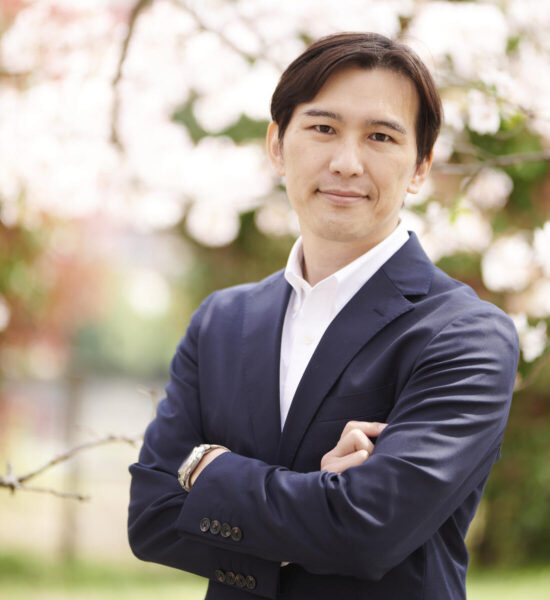
Hidetaka Hirota, Associate Professor, Department of History
Professor Hidetaka Hirota will use his time as a Matrix Fellow to continue work on a book entitled, “The American Dilemma: Nativism, Foreign Labor, and the Making of U.S. Immigration Policy.”
“The project investigates what I call the American Dilemma—the fundamental tension in United States history between nativism against foreigners and practical demand for their labor,” Hirota explained his proposal. “Opponents of immigration criticized foreigners for allegedly lowering wage standards as racially and economically inferior workers and threatening Americans’ employment and American democracy. And yet, the industrial, commercial, and economic development of the United States created insatiable demand for foreign labor, making immigration restriction an unpopular policy for capitalists and business owners.”
“This project traces how this tension evolved over the federal government’s attempts to prevent the immigration of Asian, Mexican, Canadian, and European contract workers—workers who were imported under labor contract by American employers—between the 1880s and the 1920s. It examines American labor unions’ opposition to contract workers, the federal government’s efforts to stop their immigration, and American business owners’ challenges to the policy from an interdisciplinary standpoint that blends the perspectives of History, Ethnic Studies, Sociology, Policy Studies, and Law.”
Professor Hirota also plans to convene a Matrix on Point panel discussion entitled “The 150 Years of Border Control: The Legacy of the 1875 Page Act,” as 2025 marks the 150th anniversary of the Page Act of 1875, the first federal legislation to restrict immigration to the United States. The panel will examine the Page Act’s legacies on U.S. immigration and refugee policies today.


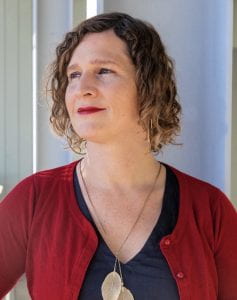
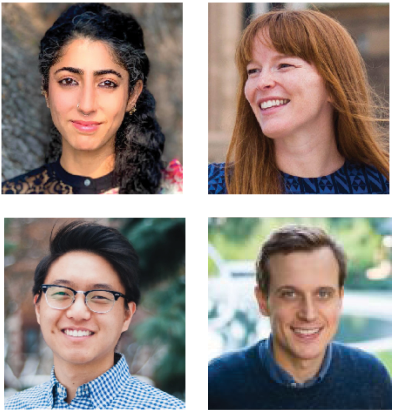
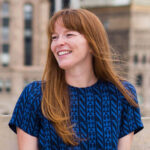
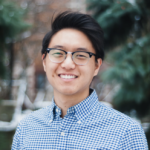
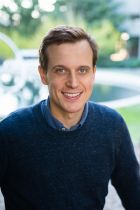 In his project, “A Macroeconomic Analysis of Universal Basic Income: Combining Theory and Evidence,” Professor
In his project, “A Macroeconomic Analysis of Universal Basic Income: Combining Theory and Evidence,” Professor 

